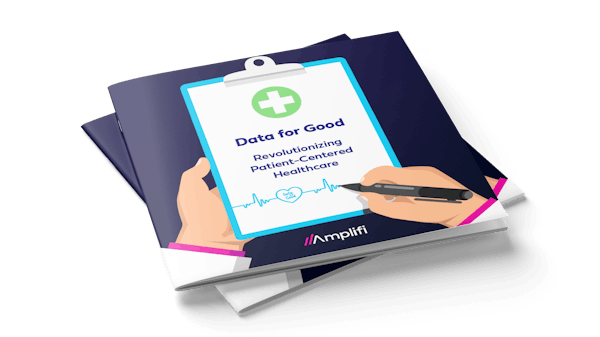1. Evolving patient expectations
In the modern US healthcare system, the concept of viewing patients as customers has gained significant traction. Patients now desire a level of service and personalization similar to what they receive in consumer-driven industries.
Case in point, a survey conducted by Dynata found that 81% of people say a good patient experience is “very important” when interacting with healthcare providers. However, they don’t just value a good experience — it’s actually driving their selection criteria. When asked the top reasons why they would switch providers or healthcare plans, respondents ranked poor experience the highest (41%). Meanwhile, 38% said they would switch based on a lack of personalization and patient understanding.
This reality encourages healthcare providers to take a more patient-centric approach. Just as businesses strive to satisfy their customers, healthcare organizations are now working to meet the needs and preferences of their patients.
2. The call to digitize
In a world where digital transformation reigns supreme, the healthcare sector is no exception. The adoption of electronic health records, the rise of telemedicine, and the integration of digital health tools have become not just important, but imperative. Embracing technology isn't merely about enhancing patient care; it's about streamlining administrative processes, enabling accessibility, and ultimately, ensuring the sustainability of healthcare systems.
3. Identity resolution in better health outcomes
Amidst this digital shift, healthcare organizations are waking up to the critical importance of accurate patient identity management. When you “know all that is knowable” about your patient or member — including chronic conditions, prescriptions, medication adherence, and care gaps — you can give them the experiences they desire more consistently.
4. Privacy regulations
Knowing all there is to know is important — but it must be done in a way that retains the patient’s privacy. Healthcare organizations are under the watchful eye of regulations like the Health Insurance Portability and Accountability Act (HIPAA). However, ensuring the security and privacy of patient data isn't just a matter of compliance; it's critical to retaining loyal patients and earning their trust.
5. Efficiency imperative
Efficiency isn't merely a desirable trait; it's an absolute necessity in the healthcare sector. Streamlining workflows, trimming administrative overhead, and optimizing resource allocation are all essential aspects of healthcare organizations' quests for greater efficiency. These improvements not only lead to cost savings but, more importantly, translate into better patient care.
6. Staff and talent retention
Efficiency is also tied to resolving the burnout that lingers among healthcare professionals. Many issues within healthcare, exposed during the COVID-19 pandemic, remain unresolved. To address this, organizations must offer better support, reduce workloads, and foster a positive culture. When you can remove manual and time-consuming tasks, it helps alleviate employees’ stress, enabling them to focus on delivering high-quality patient care.
7. Health insurance headaches
Navigating the intricacies of health insurance has become a significant challenge for both patients and healthcare organizations. Insurance plans vary in coverage, network providers, and approval processes, often leaving patients bewildered. For healthcare organizations, the administrative burden of dealing with diverse insurance plans can be overwhelming. The complex landscape of insurance necessitates meticulous coordination, clear communication, and dedicated resources.
8. Advancing innovation
On top of all the above, healthcare organizations must keep their finger on the pulse of technology and medical advancements. For example, artificial intelligence (AI) and machine learning are being integrated into healthcare processes, offering new ways to diagnose, treat, and manage patient health. AI-powered diagnostic tools can analyze medical images with unprecedented speed and accuracy, aiding physicians in making more informed decisions.
Unlocking healthcare solutions with the power of data
As we've discussed, the healthcare industry faces a host of challenges. What's exciting is that data isn't just a bystander in this evolving landscape; it's the key to overcoming these hurdles. Let’s explore how data management can offer a transformative solution for more personalized patient care, better health outcomes, and a thriving healthcare business.
Data at the heart of patient care and operations
Data is the linchpin of a patient-centric approach. By collecting and analyzing holistic patient data, healthcare providers gain insights into individual health histories, preferences, and unique requirements.
Accurate and comprehensive data is the foundation upon which healthcare decisions are made. A single, consolidated view of patient data — i.e., identity resolution — ensures that treatments are tailored to the individual, reducing the risk of medical errors and improving patient outcomes.
Boosting patient engagement through data
Data also plays a crucial role in enhancing engagement. By harnessing patient data, healthcare providers can create tailored health plans along with marketing and communication strategies that meet patients where they are in their healthcare journey.
Digital tools that patients can use to compare providers, place orders, read online reviews, gain pricing transparency, self-schedule, etc. further facilitate engagement. These capabilities, supported by trusted data, empower patients to take a more active role in managing their health.
Insights to support operational excellence
Beyond improving patient care, data insights can help optimize resource allocation, reduce wait times, and streamline service delivery. For example, data-driven scheduling can help healthcare facilities anticipate patient demand and apply resources and support accordingly.
Data also aids in navigating the often complex and overwhelming insurance claims process. By automating claims management and verifying patient information, better data helps the financial aspect of healthcare to run smoothly, reducing the burden on patients and alleviating burnout among staff.
Enhancing health outcomes
The use of data-driven strategies correlates strongly with higher patient satisfaction levels. When patients feel that their needs are understood and met, their overall healthcare experience is more positive. This, in turn, leads to greater patient loyalty and improved patient-provider relationships.
Most important, however, is the fact that data-driven decision-making directly contributes to improved health outcomes. Personalized treatments, early intervention based on predictive analytics, and proactive healthcare management all lead to better patient health. By harnessing the power of data, healthcare providers can focus on prevention rather than just treatment, leading to healthier individuals and communities.
Solving healthcare data challenges
While data holds immense potential, it also comes with challenges. For example, a lack of data standardization and interoperability makes it difficult to compile a consistent, real-time view of a patient in the context of their health journey. Patients need confidence that their sensitive medical information remains private, but without data governance, the accuracy and accessibility of data are at risk.
Thankfully, these challenges are solvable. A holistic data strategy involving people, processes, and technology enables you to establish data as the foundation for stronger patient relationships, positive health outcomes, and more efficient and reliable operations.
Amplifi has helped both private and public healthcare organizations transform their approach to data management — whether through data strategy, technology implementation, or ongoing optimization and support. Together, we are working to make data a greater force for good.
Read more in our guide, Data for Good | Revolutionizing Patient-Centered Healthcare which you can download below. Alternatively, get in touch to speak with one of our data experts!




